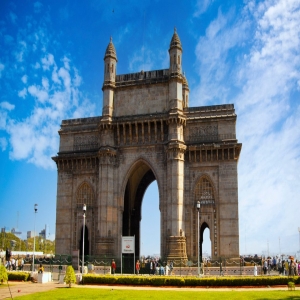
.jpg) Dr. John Singarayar
Dr. John Singarayar

The 2024 Maharashtra Assembly elections have emerged as another moment of shame for Indian democracy. They have once more exposed critical vulnerabilities that threaten the very foundation of electoral integrity. What began as a routine electoral exercise has become a national conversation about the fundamental mechanisms underpinning India's democratic process.
The controversy centres on a series of statistical anomalies that have raised serious questions about the credibility of vote counting across 92 constituencies. Election data reveals a troubling pattern of voter turnout fluctuations that defy conventional explanations. Official records show a dramatic shift from 58.22% turnout at 5:00 p.m. to a final published figure of 66.05%—a 7.83% surge that experts describe as statistically improbable.
"These aren't mere mathematical quirks," says Dr Rajesh Sharma, an electoral systems expert from Delhi University. "We're looking at an average loss of 26,500 votes per constituency, far beyond acceptable statistical variation."
The political implications are profound. The ruling National Democratic Alliance (NDA) secured 82 of the 92 contested seats, a sweeping victory that has only intensified scrutiny. Opposition parties and independent observers demand a comprehensive investigation, arguing that the scale of discrepancies evidences manipulation.
This is not an isolated incident but part of a broader pattern of electoral scepticism that has been building for years. The 2024 Lok Sabha elections similarly raised concerns about voting irregularities, creating a cumulative erosion of public confidence in India's electoral machinery.
Electronic Voting Machines (EVMs) have emerged as the primary point of contention. Despite the Election Commission of India's (ECI) repeated assurances of their impenetrability, technology experts argue that no digital system is entirely immune to manipulation. Concerns range from potential pre-programmed biases to the risk of unauthorised access during machine transportation and storage.
"The opacity surrounding EVM technology is itself a significant problem," explains Meera Krishnamurthy, a cybersecurity researcher. "We're asked to trust a system without comprehensive, independent verification."
The Voter Verifiable Paper Audit Trails (VVPATs), introduced as a transparency measure, have ironically become another source of scepticism. The system fails to provide comprehensive reassurance, with audits covering only 5% of polling stations.
The Election Commission's response has been widely criticised as inadequate. Journalists and political analysts describe a pattern of institutional defensiveness. The ECI's reluctance to conduct transparent, independent investigations has further damaged its credibility as a neutral arbiter of electoral processes.
Legal experts point to a parallel failure in judicial oversight. Courts have consistently demonstrated hesitancy to intervene decisively in electoral disputes, creating what many describe as a dangerous accountability vacuum.
"The judiciary's passive approach is perhaps the most concerning aspect," says senior advocate Priya Malhotra. "When institutional mechanisms fail to provide checks and balances, the entire democratic framework is at risk."
The ramifications extend far beyond the immediate electoral context. Each unresolved irregularity chips away at public trust, potentially leading to increased political apathy and reduced civic participation.
Local voices reflect this growing disillusionment. In Mumbai's bustling suburbs and rural Maharashtra, scepticism dominates conversations. "What's the point of voting if we can't trust the results?" says Rahul Patil, a young professional in Pune. The ability of citizens to believe in the fairness of electoral processes is fundamental to democratic governance.
Solutions ranging from comprehensive technological reforms to institutional restructuring have been proposed. Experts recommend mandatory independent audits of voting technologies, enhanced real-time data transparency, and more robust legal frameworks to protect integrity.
"We need a multi-dimensional approach," argues electoral reform activist Sanjeev Kelkar. "This isn't about pointing fingers, but about rebuilding trust in our democratic institutions."
Public awareness is a critical component of potential solutions. Grassroots initiatives increasingly educate citizens about electoral processes, transforming voters from passive participants to active democratic guardians.
The Maharashtra elections have become a critical inflexion point. They demand not just an investigation into specific irregularities but a fundamental reimagining of India's electoral infrastructure.
Technology experts advocate for comprehensive third-party evaluations of EVMs and VVPATs. The goal is to develop a voting system that is not only technologically secure but also transparently verifiable.
Data transparency represents another crucial reform area. The Election Commission must transition towards a model of real-time, publicly accessible voter turnout and polling station result data. Such transparency could significantly mitigate manipulation risks.
Judicial mechanisms require substantial restructuring. Expedited hearing processes, more proactive investigative approaches, and updated legal frameworks capable of addressing emerging digital manipulation techniques are imperative.
The broader implications extend beyond immediate political outcomes. These challenges strike at the heart of democratic representation and institutional accountability.
Restoring faith in democratic processes requires more than technical fixes—it necessitates a comprehensive cultural transformation. This involves rebuilding institutional credibility, enhancing transparency, and recommitting to the core principles of fair representation.
The path ahead requires collective effort. Electoral institutions, judicial bodies, political parties, and citizens must work together to strengthen the failing democratic mechanisms.